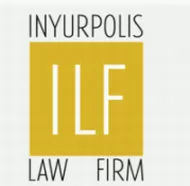Ukraine has recently just begun to assimilate into the world's trade market as its full member. Joining the World Trade Organization (hereinafter - WTO) in 2008 has improved to some degree the conditions for Ukrainian export, foremost for its leading sectors such as metallurgy, chemical industry, and agriculture. On the other hand, the WTO membership made Ukrainian national market more open for import. Ukrainian business often complains about unequal conditions for business competition in comparison with these conditions for foreign manufacturers. In such situation Ukrainian business is in need of an effective remedy that the government must provide. A member of the WTO has the right to ask for reconsideration of the terms of its membership in the WTO every three years. And in 2012 Ukraine will have an opportunity to reconsider certain terms for the membership. Meantime, Ukrainian business must protect itself from the increasing quantity of the imported goods by means of the existing remedies. These include, inter alia, national legislation that regulates antidumping procedures.
Filling a complaint with the state authorities appears to be one of the most effective remedies that protects against dumping. Under the current Ukrainian law, such state authorities are: Interagency Commission on International Trade (hereinafter – Commission), Ministry of Economic Development and Trade (hereinafter – Ministry), and State Customs Service.
The complaint must contain evidence of dumping, damage suffered from the importer, and causal link between them. The Ministry determines the difference between the reasonable value of goods and the export price. As a result the Ministry gives its recommendation to the Commission on whether or not to initiate an investigation. It should also be noted that even in case of initiation of an investigation imported goods may still be subject of the Customs clearance. After the adoption of a decision to initiate antidumping investigation, the Commission refers the case to the Ministry once again. Together with other state bodies the Ministry conducts the investigation. The next step is publishing of a relevant note about the initiated investigation, the characteristics of the goods that are investigated, the time-terms for the investigation, etc.
During the special antidumping investigation, the Ministry explores various factors, such as: tendencies of import to Ukraine, threat of considerable damage to Ukrainian business by importers, volumes of imported good, differences in price, etc.
As an interim measure, in order to prevent alleged damage to Ukrainian business, the Commission may decide to apply antidumping measures in the form of a duty. The size of the duty is regulated by the Commission's decision. Such interim measures cannot last more than six months. An importer has the right to get refunded for all paid duties, if the Commission considers that Ukrainian business did not suffer from the importer.
As a general rule, a period of special antidumping investigation lasts for about one year. In certain cases the Commission may decide to prolong the investigation up to eighteen months.
At the end of the investigation the Ministry forms a report and forwards it to the Commission, which decides whether or not to apply special measures, according to the Act of Ukraine "On the Application of Interim Measures in Respect to Imported Goods into Ukraine".
Enforcement of special measures is delegated to the State Customs Service of Ukraine. Each quarter the Customs Service informs the Ministry and the Commission about the volumes of imported goods that are under the antidumping investigation, and about the amounts of duties that are charged according to the Commission's decision.
As a general rule the period of application of special measures cannot last longer than four years. But if there is a need to prevent considerable damages or there is evidence that the national business community is in the process of adaptation to a competitive environment, the Commission has the right to prolong the time period in question. When application of special measures expires, the Ministry provides the Commission with a report on the results of their application.
The Commission and the Ministry take into consideration not only the legislation of Ukraine, but agreements with WTO as well, such as: GATT (General Agreement on Tariffs and Trade), Agreement on Implementation of Article VI of GATT 1994, and the practice of their application. If it appears that there is a conflict between the WTO rules and Ukrainian law, the WTO's rules prevail.
The question of protection of Ukrainian manufactures against unfair competition by foreign companies is the first-priority matter for the development of the country's economy. Ukrainian business has several ways to oppose aggressive import practices: either to apply antidumping mechanisms of protection, or to ask the Ukrainian government to review the conditions for Ukraine's membership with the WTO, in particular, regulation of duties. Such a behavior of the national business is natural and it will create beneficial environment for both itself and future entrepreneurs.
The content of this article is intended to provide a general guide to the subject matter. Specialist advice should be sought about your specific circumstances.

